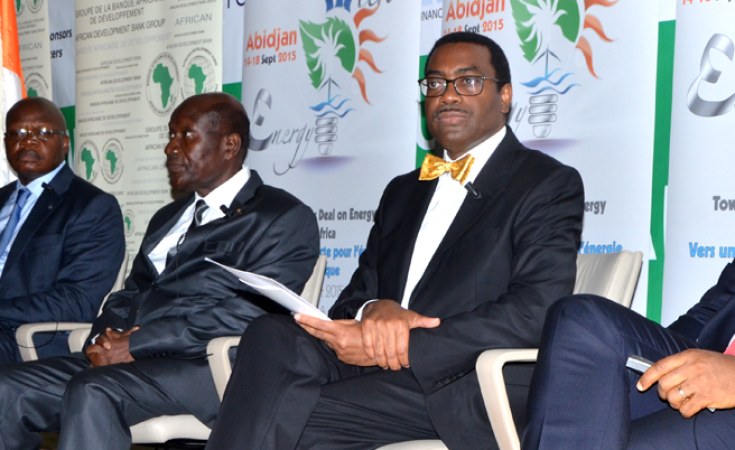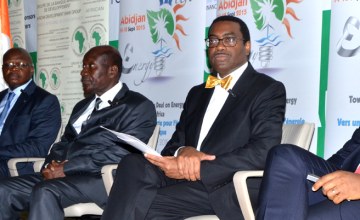A blue print to get rid of Africa's energy poverty by 2025
The African Development Bank Group (AfDB) unveiled its landmark initiative to solve Africa huge energy deficit by 2025 at a High Level Stakeholder Consultative Meeting attended by business and political leaders at its headquarters in Abidjan on 17 September 2015.
The "New Deal for Energy in Africa," which charts the way for a transformative partnership on energy focuses on mobilizing support and funding for the initiative from five key areas.
Firstly, the AfDB would significantly expand its support towards energy in Africa; development partners would also be obliged to scale up on-going efforts while countries must also expand their share of financing going into the energy sector and at the same time demonstrate stronger political will to ensure success of the Deal. Development partners would also be required to work together and coordinate their efforts to drive critical policy and regulatory reforms of the energy sector to improve incentives for accelerated investments.
"A lot of financing will be needed. Together, we must close the $55 billion financing gap for energy in sub-Saharan Africa. And we must raise our level of commitment to meet the $22 billion needed to support universal access to energy in the region," AfDB President Akinwumi Adesina underscored in a speech unveiling the Deal.
Adesina also illustrated how domestic resource mobilization would play a crucial role by leveraging on just 10% of the continent's tax revenues estimated at US$ 500 billion per year; how ending the over $60 billion annual illicit financial flows out of Africa can help; how developed countries meeting the 0.7% commitment for Gross National Income for development assistance which can generate more than $178 billion can also help to scale up energy development in Africa.
"The New Energy Deal for Africa will push for the establishment of a Bottom-of the Pyramid Energy Financing Facility for Africa. This should support some 700 million people to afford clean cooking energy stoves. The cost is well within our reach to provide, for it will take only $4.2 billion to solve the problem. We can and must solve their problem - and do so quickly," the AfDB President said.
He called for the development of major regional energy projects such as the Inga dam in the Democratic Republic of Congo.
Quoting an African proverb, Adesina said Africa must go far and solve its energy challenge by 2025. He added: "And for that we must move together. This is why at the Bank we have proposed the formation of the Transformative Partnership on Energy in Africa. Under this, we will pull together to drive the needed reforms in Africa's energy sector to achieve the universal access to energy by 2025. Success lies just ahead of us!"
Also speaking at the gathering, Nigerian Banker and Co-chair of the African Energy Leaders Group, Tony Elumelu, said that the private sector can play a crucial role in the development of Africa's energy sector, if provided with the required enabling environment.
Given the situation in which some 600 million people lack energy in Africa, it would be necessary for Africa to explore all good sources of energy to meet the huge deficit, adding that the AfDB was in the best position to bring businesses, governments and international organisations to make the deal a success.
For his part, former United Nations Secretary General, Kofi Annan, commended he intitiate, noting that Africa's leaders had no choice but to urgently bridge the energy gap.
The Vice Prime Minister of the Democratic Republic of Congo, Thomas Luhaka and Cote D'Ivoire's Prime Minister, Daniel Kablan Duncan commended AfDB President Adesina for putting together such as ambition initiative barely two weeks after his investiture. They pledged to mobilise the necessary political support required to ensure that Africa gets rid of its "energy poverty" by 2025.



